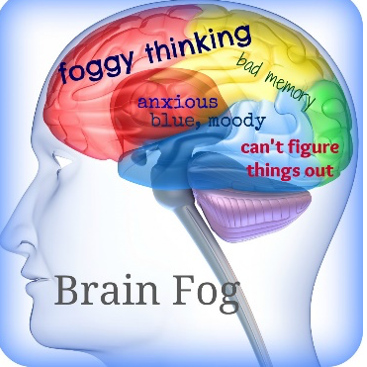How Can probiotics improve your mood?
In this article we will discuss how probiotics can affect your gut microbe balance and your mood.
Your body contains whole communities of microbes living within. These have a role in your mental health, affecting your cognitive function, stress and anxiety. We have previously written about the gut-brain connection and how the brain and gut affect each other. Gut microbes can have unexpected influences on your mood and anxiety symptoms. Gut microbes can regulate brain function through the gut-brain connection, and an imbalance of the gut microbes tips the scale toward mood and anxiety symptoms [1].

How gut microbes affect your mood: the mechanism involved.
The gut microbiota is the primary regulator within the gut-brain connection. These microbes produce neurotransmitters (brain signals) and their precursors, as well as essential proteins and compounds involved in hormone release. Gut microbiota regulate signalling from the gut to the brain through cytokines (cell signalling proteins). Irregular signalling from the gut to the brain may be responsible for the stress response in the body, and is associated with higher levels of the stress hormone, cortisol [2]. Stress-related disorders can alter the composition and stability of gut microbiota, resulting in an inflammatory state within the gut [3].

This inflammatory state in the gut increases bacteria associated with inflammation, which in-turn can induce inflammation of the brain and central nervous system (CNS). Inflammation of the brain and CNS has been linked to depression, and anxiety [1].
How can probiotics restore your gut microbe balance and improve your mood?
It is possible to treat anxiety symptoms by restoration of your gut microbes via dietary changes as well probiotic interventions [4].

Probiotics improved anxiety symptoms in patients with irritable bowel syndrome by altering their gut bacteria, providing evidence of gut-brain mechanism at work [5]. Most studies using probiotics did not report serious side effects, and it is generally considered safe to consume probiotics to improve anxiety in order to regulate your intestinal flora [4].
At Refine Naturals, we have formulated a product, MIND PROBIOTIC, for both brain and gut health, with proven evidence of:
- beneficial effects on anxiety and depressive measures [6]
- promoted healthy mood [7]
- reduced levels of the stress hormone, cortisol [8]
- improved sleep quality [9]
- decrease in gastrointestinal-related stress symptoms [10]

This is the first probiotic approved by Health Canada for both brain and gut health.
At Refine Naturals, we realize that not all natural health supplements are created equal. We concentrate our expertise in choosing quality and evidence backed medicinal as well as non-medicinal ingredients. We keep our labels and marketing practices compliant to advertising standards, so as to never mislead consumers in their decision making. For a complete list of our supplements, click on our product catalog.
At Refine Naturals: We believe “You Deserve Better than FINE!”
References:
- Lee, C. H., & Giuliani, F. (2019). The Role of Inflammation in Depression and Fatigue. Frontiers in immunology, 10, 1696. https://doi.org/10.3389/fimmu.2019.01696
- Simpson, C. A., Diaz-Arteche, C., Eliby, D., Schwartz, O. S., Simmons, J. G., & Cowan, C. (2021). The gut microbiota in anxiety and depression - A systematic review. Clinical psychology review, 83, 101943. https://doi.org/10.1016/j.cpr.2020.101943
- Lach, G., Schellekens, H., Dinan, T. G., & Cryan, J. F. (2018). Anxiety, Depression, and the Microbiome: A Role for Gut Peptides. Neurotherapeutics : the journal of the American Society for Experimental NeuroTherapeutics, 15(1), 36–59. https://doi.org/10.1007/s13311-017-0585-0
- Yang, B., Wei, J., Ju, P., & Chen, J. (2019). Effects of regulating intestinal microbiota on anxiety symptoms: A systematic review. General psychiatry, 32(2), e100056. https://doi.org/10.1136/gpsych-2019-100056
- Raskov, H., Burcharth, J., Pommergaard, H. C., & Rosenberg, J. (2016). Irritable bowel syndrome, the microbiota and the gut-brain axis. Gut microbes, 7(5), 365–383. https://doi.org/10.1080/19490976.2016.1218585
- Kazemi, A., Noorbala, A. A., Azam, K., Eskandari, M. H., & Djafarian, K. (2019). Effect of probiotic and prebiotic vs placebo on psychological outcomes in patients with major depressive disorder: A randomized clinical trial. Clinical nutrition (Edinburgh, Scotland), 38(2), 522–528. https://doi.org/10.1016/j.clnu.2018.04.010
- Messaoudi, M., Violle, N., Bisson, J. F., Desor, D., Javelot, H., & Rougeot, C. (2011a). Beneficial psychological effects of a probiotic formulation (Lactobacillus helveticus R0052 and Bifidobacterium longum R0175) in healthy human volunteers. Gut microbes, 2(4), 256–261. https://doi.org/10.4161/gmic.2.4.16108
- Messaoudi, M., Lalonde, R., Violle, N., Javelot, H., Desor, D., Nejdi, A., Bisson, J. F., Rougeot, C., Pichelin, M., Cazaubiel, M., & Cazaubiel, J. M. (2011b). Assessment of psychotropic-like properties of a probiotic formulation (Lactobacillus helveticus R0052 and Bifidobacterium longum R0175) in rats and human subjects. The British journal of nutrition, 105(5), 755–764. https://doi.org/10.1017/S0007114510004319
- Romijn, A. R., Rucklidge, J. J., Kuijer, R. G., & Frampton, C. (2017). A double-blind, randomized, placebo-controlled trial of Lactobacillus helveticus and Bifidobacterium longum for the symptoms of depression. The Australian and New Zealand journal of psychiatry, 51(8), 810–821. https://doi.org/10.1177/0004867416686694
- Diop, L., Guillou, S., & Durand, H. (2008). Probiotic food supplement reduces stress-induced gastrointestinal symptoms in volunteers: a double-blind, placebo-controlled, randomized trial. Nutrition research (New York, N.Y.), 28(1), 1–5. https://doi.org/10.1016/j.nutres.2007.10.001




